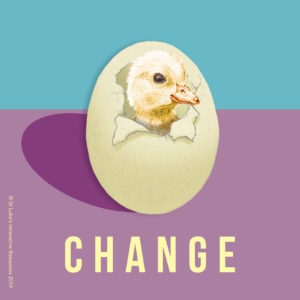If someone were to ask each of us what Christmas meant to us, we would probably all have a different answer. We might talk about Christmas trees covered in wonky decorations made by our children, the ‘shushed’ wrapping of presents late at night or Christmas mass at our local church. We might think of our childhood Christmases waking early to catch Santa leaving gifts, a big meal with family or backyard cricket on lazy afternoons. For some of us, Christmas is a spiritual and reflective time of year. For others, it’s a cultural holiday. For those of us who don’t celebrate Christmas, it’s just another day.
Chances are, however you celebrate Christmas, relationships with family and friends feature strongly.
While we often think of Christmas as a time of year when family and friends come together to enjoy each other’s company, in reality Christmas can also be a fraught time, with relationships tested and ‘normal’ life put on the back burner. Rushed last minute shopping, stretched bank balances, a turkey that’s too big for the oven and Uncle George’s uncanny ability to say exactly the wrong thing at the wrong time, can leave even the most patient among us feeling frazzled and irritable.
 On top of the regular Christmas stress, Christmas can also be a time when we become acutely aware of the people who are not with us. There may have been a family separation, people living in different parts of the country or world, or someone may have passed away, leaving us with feelings of sadness, isolation, loneliness or a range of other emotions. While we like to think of Christmas as a joyous time of year, the reality can be a lot more complex
On top of the regular Christmas stress, Christmas can also be a time when we become acutely aware of the people who are not with us. There may have been a family separation, people living in different parts of the country or world, or someone may have passed away, leaving us with feelings of sadness, isolation, loneliness or a range of other emotions. While we like to think of Christmas as a joyous time of year, the reality can be a lot more complex
So how do we navigate all these relationships and stresses in a meaningful way?
In the months leading up to Christmas, it can be valuable to re-evaluate what is truly important to us and think about what is just ‘window dressing’.
Reducing stress
Being aware of the things that create stress or pressure before they happen can provide an opportunity to consider ways to do things differently. We are creatures of habit and sometimes we do things in a certain way because that’s the way it’s always been done—this is often the case with long-standing family traditions around holidays and celebrations.
When we’re feeling overwhelmed or pressured, it’s easy to transfer some of that stress and tension onto the people we care about, putting pressure on those relationships. By reducing our own stress, we are likely to reduce tension within our relationships also. It might be worth considering:
- What self-imposed stresses could you remove?
- What stresses or expectations come in on you from others? Can you reduce or remove some of these stresses?
- Who are the most important people in your life? What simple things could you do to honour those relationships?
- What are the pressure points for you at Christmas?
- Who are you grateful for?
- Is there something you are likely to feel sad or worried about this Christmas? How could you think about this differently? Who could help?
- Do you have expectations of others at Christmas? Are these expectations helpful or necessary?
Valuing diversity
Families are often diverse. They can include people who have very different ideas about the world. And that’s without even including all the in-laws! When families get together, it can be a time of great reconnection and joy. But it can also be a time when different values and beliefs bump up against each other. Throw alcohol into the mix and things can heat up fairly quickly.
In my family as a kid, the arguments usually centred on Holdens v Fords, or which footy team was better. These were pretty artificial differences but they still caused sparks…and lots of arm waving.
So how do we manage clashing values and beliefs at Christmas?
Sometimes a good way to do this is to have a time in the day when people reflect on what they value about one another. This places the emphasis on what we have in common rather than our differences. At a certain point in the day, people could be invited to write down one thing they value about each person present. It could take the form of a ‘Secret Santa’ which focusses on what you value about the person.
Or you could ask everyone to commit to a ‘no judgement’ or ‘no criticism’ pact for the day. You could make it fun and include a consequence, like having to make a contribution to a swear jar or wearing a funny hat. If there are kids at your celebration, it can be great to involve them—kids love keeping the adults honest in games like these.
Creating new traditions 
In the months leading up to Christmas, it can be worth taking some time to reflect on what a meaningful Christmas and festive season might look like for you and the people you care about. You might consider things like:
- What do the people you care about value? How could you incorporate this into your celebrations?
- What could you do that would be nurturing during the festive season?
- Which of your current traditions serve you well? Which ones create stress and tension?
- Imagine this was the best Christmas you’d even had. What happened? Who was there? How did you feel?
- What’s one thing you could you do differently that would increase connection and appreciation?
Once the crazy Christmas push gets into full swing, we often lose the opportunity to reflect on these questions. Now is the time to ask yourself, how can I make sure this festive season is as stress-free, respectful and meaningful as possible for me and the people I care about?
Dr Sue King-Smith



